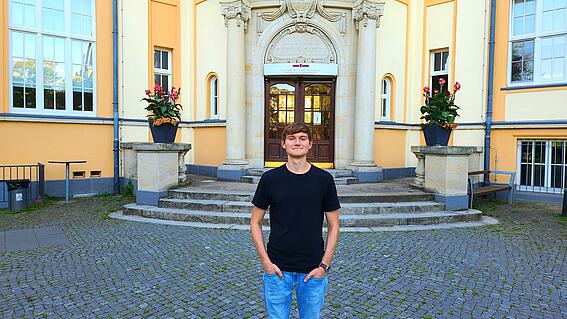What is the major focus of your research in the US and here at Bucerius?
My research broadly focuses on how climate change impacts human rights law, and the corresponding implications for international states to respond to these impacts. At Bucerius Law School, I am focusing largely on a project which explores understandings of state obligations to protect the right to life under Article 6 of the International Covenant on Civil and Political Rights (ICCPR) as it relates to human displacement and migration resulting from climate change.
Climate change is one of the most pressing issues facing humanity. It not only has long-term implications for the basic stability and sustainability of society, but the short-term impacts are already being seen. My project focusing on the right to life and climate migration is an emerging area of law which covers a lot of interesting new legal terrain because the impact of climate change on migration raises difficult, yet pertinent questions. This means the main issues are varied, but lack a large historical body of legal knowledge largely because of this novelty.
Looking at what obligations states have to individuals displaced by climate change under Article 6 of the ICCPR, which states that every human being has the inherent right to life, this can encompass concerns relating to both negative and positive obligations on the part of State actors, as well as both internal and external displacement. Determining obligations also raises questions of causation, remedies, and jurisdiction, making them particularly important in this area of law.
What makes your area of research relevant?
I was able to receive a research scholarship specifically designed for American legal scholars to work at Bucerius Law School. The German legal system and law in the European Union is much different from legal studies and the legal system in the United States. This research exchange has allowed me to learn and interact with scholars who I may not otherwise be able to meet with in person, and both discuss work more casually one-on-one as well as more formally in large groups to sharpen my own work and incorporate constructive feedback. This has been particularly important in developing my work.
Why did you choose to research in Germany, and here in particular?
The ability to make connections with other legal professionals and students in a new environment is particularly rewarding, as you can gain unique insights and hear distinct experiences and perspectives on issues. Bucerius Law School is a highly international school, which is especially conducive for this. For others who are thinking of a research stay such as this, I would recommend coming in with an open mind to experience events, ideas, and interactions which you may not be able to get back in the United States or elsewhere.
What was the most rewarding aspect of your stay here?
I was excited, but did not know what to expect. I had spent time in Germany before, but had never visited Hamburg and had not lived in the country by myself for an extended period of time. When I arrived, I was warmly welcomed immediately and found the city to be a great place to live and work. I can say that Hamburg is one of the most beautiful, livable, and exciting cities I have been able to experience, and it will always hold a special place in my heart.
What was the biggest challenge in settling in Hamburg?
The biggest challenge in settling in Hamburg, in my opinion, is adjusting at first to small differences in how services work and what appliances are common in apartments or homes. For example, if you are someone who likes to go to the gym, in the United States it is extremely easy to come across cheap gym memberships that you can easily purchase or cancel month-to-month.
In Hamburg, and Germany in general, most gym memberships work on long-term contracts lasting one or two years which are not very practical if you are only staying for a few months. Coming from the United States where air conditioning and drying machines are common in apartments and buildings, this may also not be the case where you are staying in Hamburg. Hanging clothes to dry and adjusting windows and curtains became a much more common part of my daily routine!
Dan, thanks for the interview.

